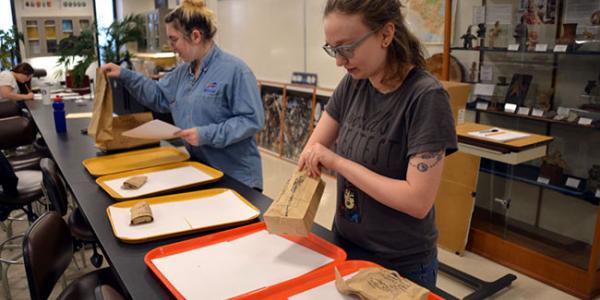| Archaeology | Cultural Anthropology | Linguistics | Physical Anthropology |
|---|
Anthropology is the study of the human being: anthropo. Our cultural and biological diversity has developed over human history. In this discipline, we study how humans have come to be who and what we are today- our physical development and the effects of nutrition and diseases, the ways we organize ourselves in groups, the beliefs and values shared within and across cultures, the ways we mark our identity with the languages we speak.
American anthropology has four broad subfields. Archaeology examines the material records of past societies. Physical anthropology studies human evolution and modern human biological variation. Cultural anthropology is the broadest subfield, investigating customs, traditions, religions and rituals of contemporary human societies. Linguistic anthropology explores the relationship between language and culture in past and present human societies.
Students in our program receive concentrated training in these four subfields, with additional training in other subfields available through electives, independent study courses, and participation in on-going faculty research projects. Current projects include Maya archaeology, ethnographic video, and skeletal analysis and forensic anthropology, and urban anthropology of Ethiopia.
Elective courses in African, North American, Meso-American, and South American cultures are offered regularly, and periodically courses in Gender, Visual Anthopology, Forensics, and Maya Archeology are offered.
All anthropology students are encouraged to acquire training in computer and media sciences and to develop writing skills that exceed the minimum requirements of the University. Majors who anticipate pursuing graduate study in anthropology are also encouraged to gain substantial foreign language training as undergraduates.
The academic success of our students is facilitated in several ways. The Anthropology Peer Tutoring Program provides tutoring services for students in some introductory anthropology courses. Faculty advisors are available to counsel majors and minors in course selection, career planning, and preparation for study at the graduate level. An active student organization, the CSU Anthropology Association, sponsors a variety of educational and social activities for interested students throughout the year.





